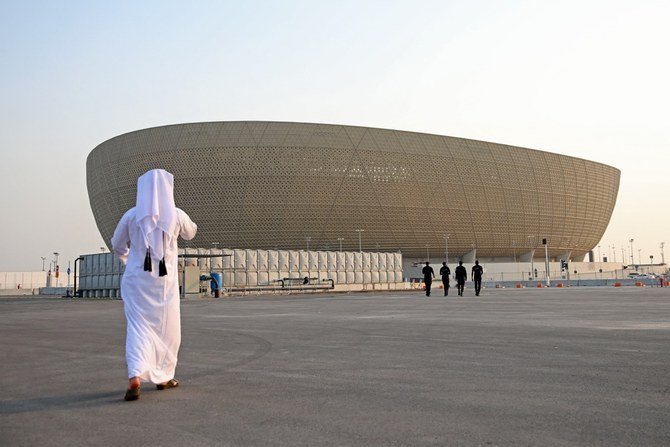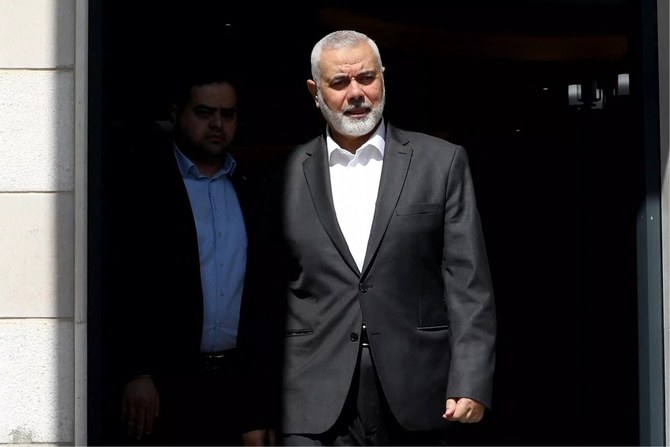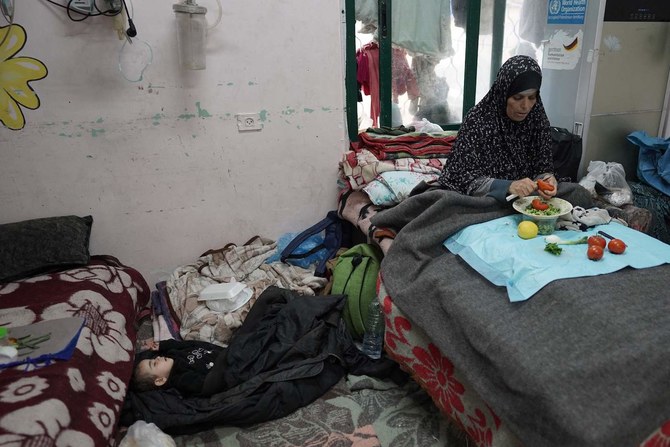Rebecca Anne Proctor
DUBAI: Even before the first football World Cup ever to be held in the Middle East kicks off in Qatar on Nov. 20, the entire Gulf region is counting on a massive boost to the air travel, tourism and hospitality industries.
An influx of 1.2 million visitors is expected to add $17 billion to the Qatari economy over the course of the eagerly awaited month-long tournament, when visitors pack into the nation’s hotels for the greatest sporting spectacle on earth.
However, there is one catch. Owing to Qatar’s small size, there is a limited amount of accommodation on offer — as few as 30,000 hotel rooms as of March this year — forcing fans to search elsewhere in the region. And the shortage is driving up hotel rates.
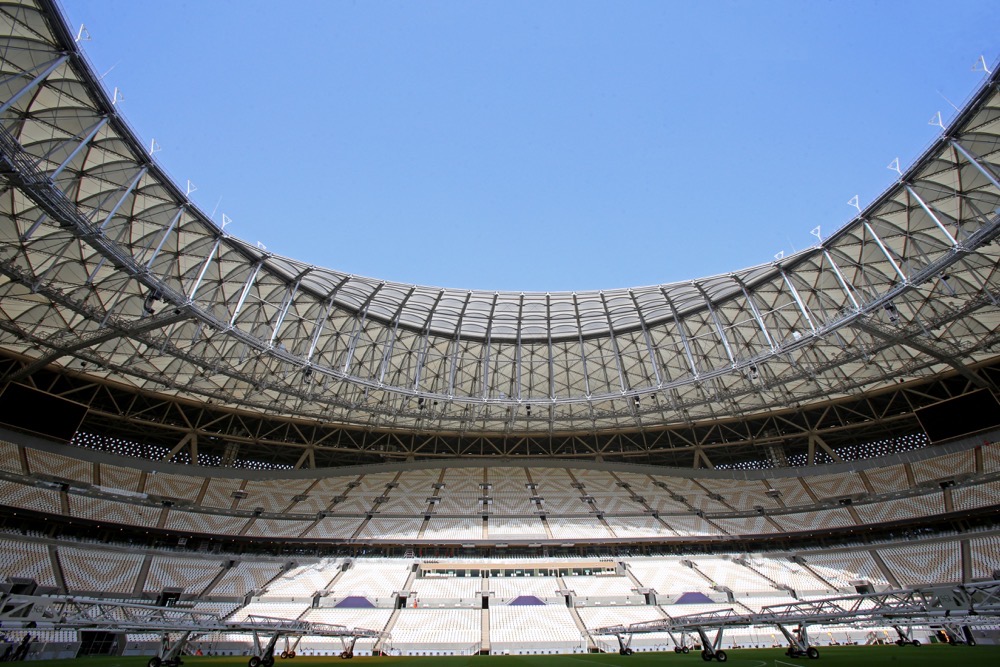
“Across the board, hotel rates are already three to four times higher, so you can already immediately feel the impact of the World Cup,” Qatari businessman Tariq Al-Jaidah told Arab News.
Al-Jaidah’s family business, Jaidah Holdings, owns W Doha Hotel & Residences, the first W brand hotel in the Middle East and North Africa. The group also owns and runs major luxury hotels across Europe, including The Gritti Palace in Venice, The Westin Excelsior and The St. Regis in Florence.
Al-Jaidah’s brother, Ibrahim M. Jaidah, group CEO and chief architect of the Arab Engineering Bureau and Ibrahim Jaidah Architects and Engineers, designed the Al-Thumama Stadium that will seat 40,000 spectators for matches up to the quarterfinal stage.
“There are so many milestones associated with it — as the first World Cup in the Middle East — and for many people it is a way of life to come and watch the matches,” said Al-Jaidah.
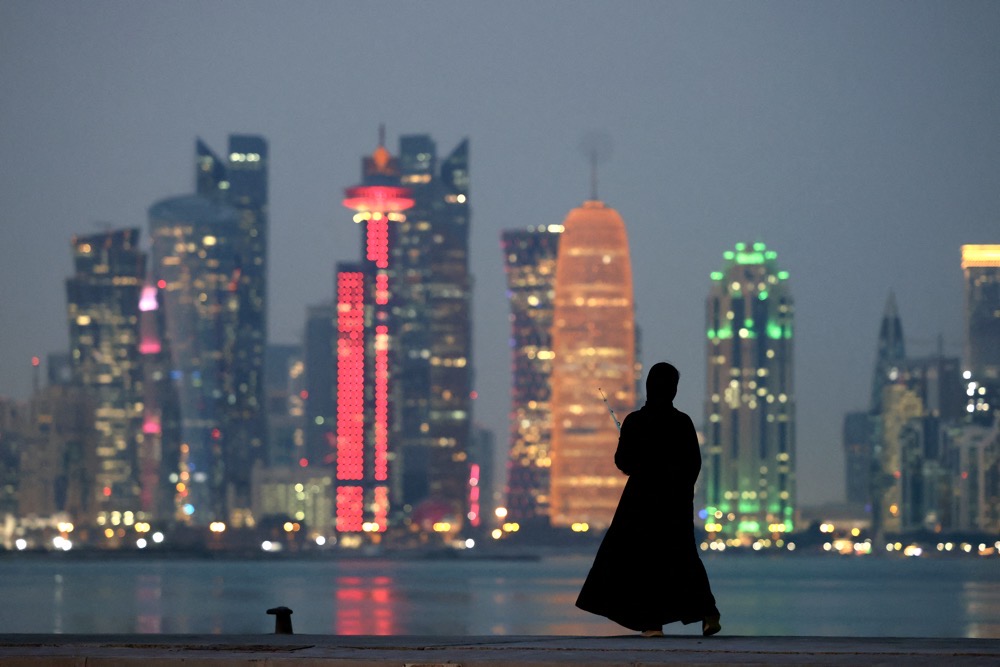
“To many on this planet it is a way of life and this time it is bringing them to a region many haven’t visited before. You can feel that the region — the Gulf countries — are coming together in a natural way for the event.”
To accommodate the legions of football fans heading to Qatar, organizers have already leased two cruise ships and plan to pitch more than 1,000 tents in the desert. A shuttle service has also been established to connect Doha with other regional cities, including Muscat, Riyadh, Jeddah and Kuwait City.
The launch of day flights that will shuttle spectators to and from matches is expected to create plentiful business for local airlines, hotels and hospitality venues, particularly in the nearby nations of Oman, Saudi Arabia and the UAE.
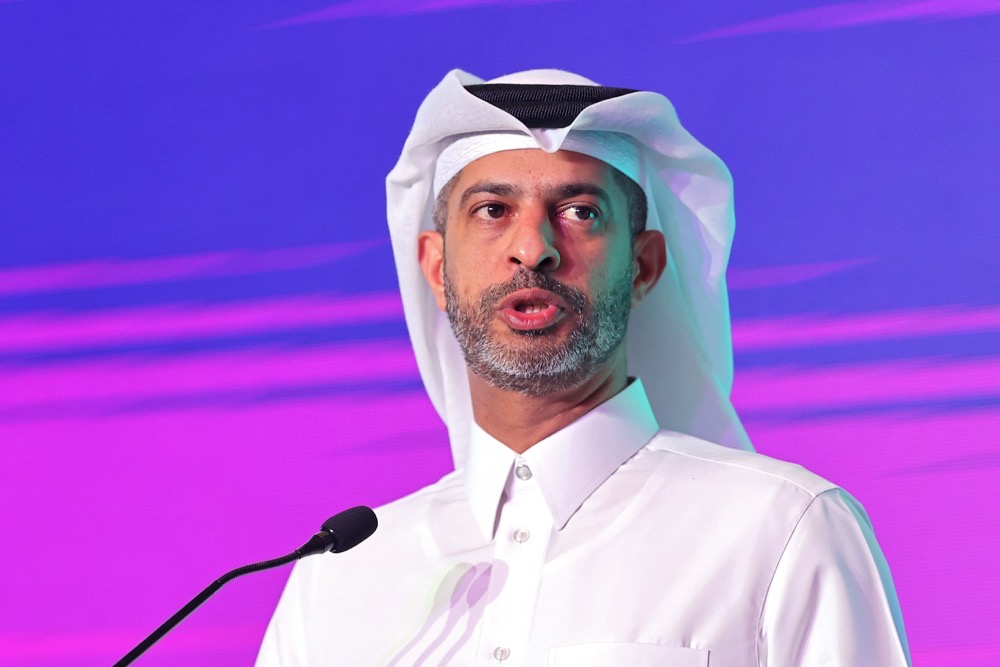
“Saudia is advertising special flights, so is Oman, which is ready to receive maximum capacity guests,” said Al-Jaidah.
“The skies are open to all the airlines — just between the two cities of Doha and Dubai you will have 60 to 80 flights a day — forming a veritable air bridge, so that people can commute in an easy way. All of this is creating a phenomenal momentum between Gulf countries.”
Dubai will be “the major gateway” to the World Cup, with more people likely to enter Qatar through the emirate than its own capital Doha, Paul Griffiths, the CEO of Dubai Airports, recently told Bloomberg News.
“The amount of hotel capacity in Qatar is fairly limited and we’ve got so much to offer here,” Griffiths added.
Indeed, the UAE’s hospitality sector has seen hotel rooms snapped up months in advance. In July, hotel rates in the country saw a 20 percent rise, with many industry experts expecting 100 percent occupancy during the tournament.
Travel agencies are also cashing in on the surge in demand. UAE-based company Expat Sport is advertising a “Football Fans Dubai Experience” package that provides transportation to and from the airport.
“Internationally we have seen the highest demand for our Football Fans Dubai Experience from the UK, South America, Mexico, India and China,” Sue Holt, executive director of Expat Sport, told Arab News.
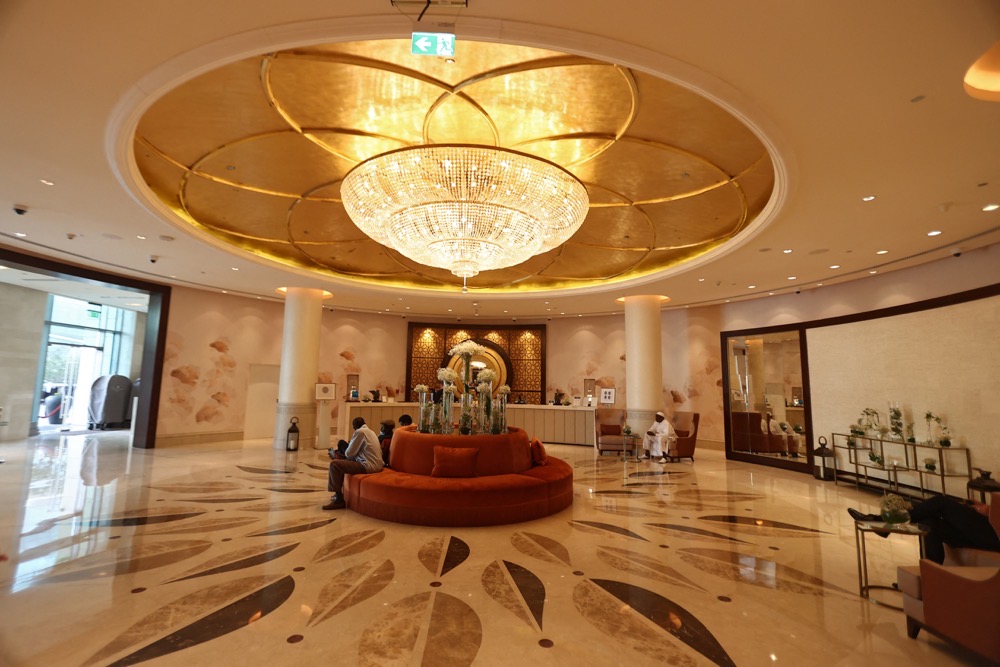
“We have also had a large number of enquiries from Saudi Arabia from people wanting to come to spend time in Dubai during the early stages of the tournament, then fly over on the daily shuttle flights for specific games. The opening weekend has been our most popular package, with all available rooms almost sold out.”
Sports tourism is especially lucrative, says Holt, because “it tends to be groups rather than a single person traveling.”
Fan zones will be established around Dubai, including at the 533-room NH Dubai The Palm, a gigantic new luxury hotel on the city’s palm-shaped island. The football-themed hotel will host guests willing to take the 40-minute flight to Doha.
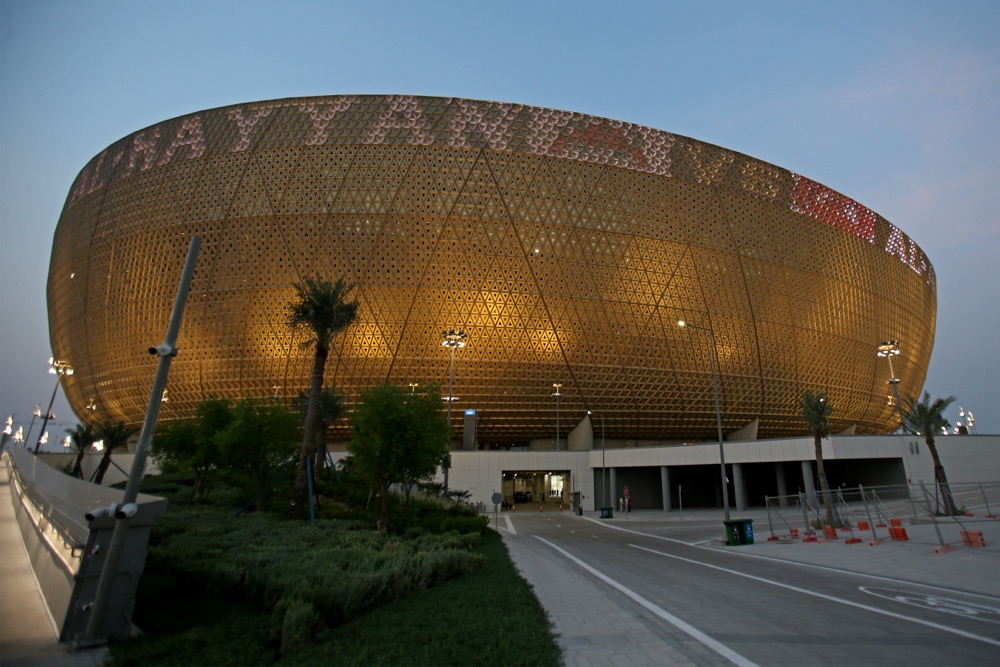
“Having such a momentous event take place in the region will undoubtedly drive more football and revenue to the UAE, mainly Dubai,” Naim Maddad, chief executive and founder of Gates Hospitality in Dubai, told Arab News.
“With the multiple-entry visas now available for those with tickets to the World Cup, this is likely to drive a lot of extra revenue for city hotels in great locations (and close enough to the airport), but we’re also expecting the same for our food and beverage outlets all over the city.”
It is not just the UAE’s commercial capital that is expecting an influx of visitors and a boon to local business. Oman’s capital Muscat and the Saudi cities of Jeddah and Riyadh are also braced for added footfall.
Both Gulf nations are hosting festivals to coincide with the tournament and have outlined plans to streamline travel procedures. For instance, Oman Air, the national carrier, is offering special fares for football fans traveling to Qatar. Meanwhile, those registered for Qatar’s Hayya fan card can also apply for multi-entry visas to Saudi Arabia.
The Hayya card is a fan ID issued by the government of Qatar for those attending the World Cup. The document replaces the usual entry visa, but is only valid for the duration of the tournament.
Tour operators in Saudi Arabia, such as Travel-it, are also advertising special itineraries for football fans who are keen to explore the wider region during the tournament.
“Travel-It aims to bolster Saudi Arabian tourism by providing fans who will be attending the World Cup in Qatar this winter the opportunity to take advantage of the company’s itineraries,” a company spokesperson told Arab News.
Travel-It, which is an online travel and tourism platform, is offering an air and road shuttle service between Saudi Arabia and Qatar, together with trips to Al-Ahsa Oasis in Saudi Arabia’s Eastern Province and elsewhere.
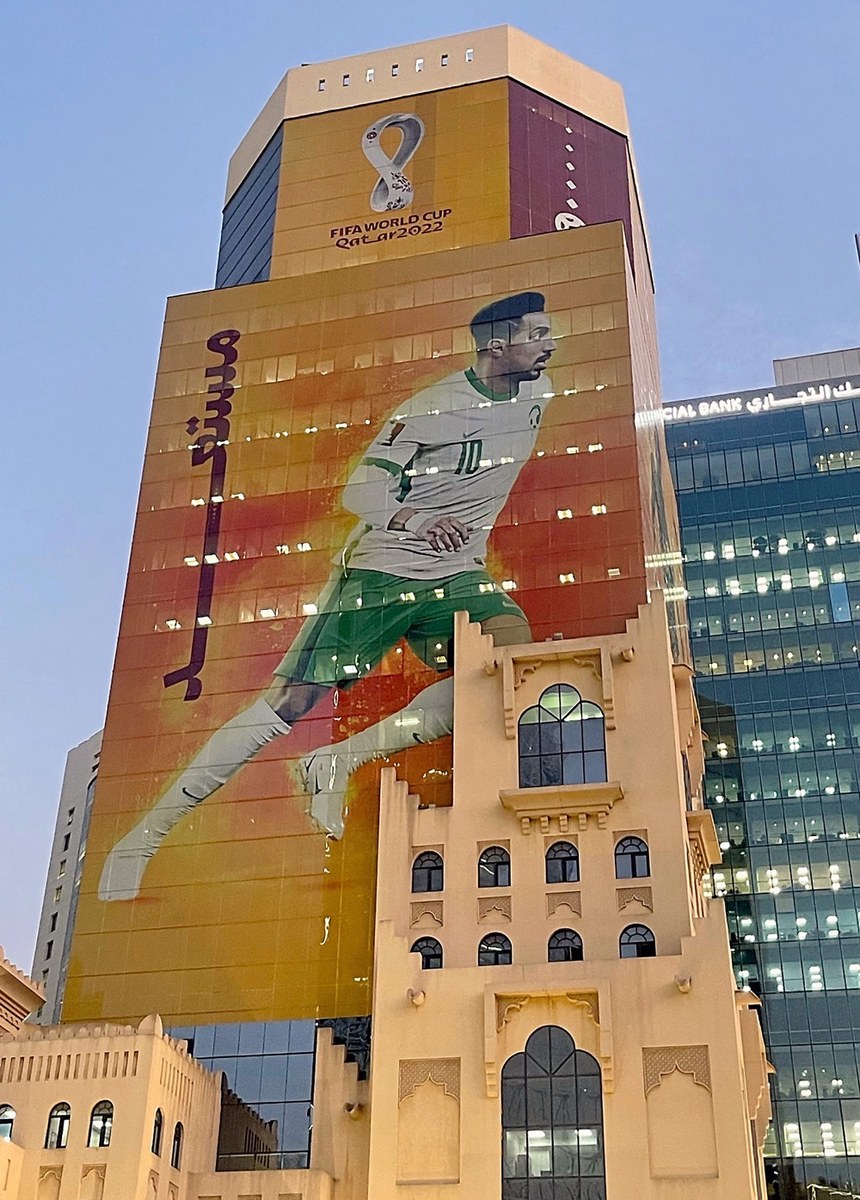
“This will allow them to explore nearby tourist sites in Saudi Arabia and immerse themselves in the rich local culture,” the spokesperson said. “In addition, Qatar’s proximity to Saudi Arabia means fans will be able to expand their journeys to incorporate destinations in both countries.”
The World Cup offers a once-in-a-lifetime opportunity for the entire region to establish itself as a must-visit destination in its own right.
“Importantly, the tournament will increase awareness of the Middle East and Gulf region,” said Al-Jaidah. “A very large number of tourists have never made it to this region. Perhaps it was not on their radar, but this event will bring them together.
“The World Cup will increase the attractiveness of the region, and show the world how we are able, after Expo 2020 Dubai and the World Cup in Doha, that the sky is the limit here. We are ready for whatever is next.”



